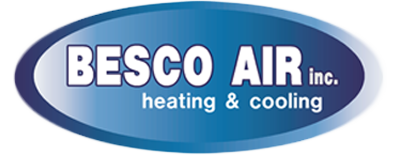When it comes to brutally cold temperatures, Chicago is no slouch. Average January temperatures remain below freezing all month. When cold fronts come through, temps can drop below zero and linger there for days at a time. Fortunately, dual fuel HVAC systems can keep Chicago homeowners toasty warm without driving them into debt with heating costs.
Dual Fuel Systems in a Nutshell
We all want lower heating bills, and the heat pump in a dual fuel system can provide that. Heat pumps extract warmth from outdoor air and use it to heat your home. As long as outdoor temperatures remain above freezing, heat pumps are remarkably energy-efficient as well as highly effective.
However, when temperatures drop below freezing, the available heat in outdoor air diminishes. Besides a marked reduction in heating effectiveness, the heat pump will consume more energy. You might notice cold spots or drafts in your home.
High-efficiency Heating
To solve this problem, a furnace is added to the mix to serve as a heating backup on extremely cold days. The furnace automatically takes over when outdoor temperatures fall below 32°F. It delivers backup heat until outdoor temperatures rise and the heat pump comes back online.
Dual fuel heating systems can reduce heating costs by about 30 percent over traditional furnaces alone. The upshot is energy efficiency that saves you money and plenty of heat to keep you feeling snug.
Emergency Heating Capability
Heat pumps are fitted with an emergency heating feature that provides heat if you don’t have a backup furnace. Also known as auxiliary heat, it kicks on automatically when the heat pump can no longer extract sufficient heat energy from the outdoor air.
Emergency heat basically transforms your air handler into a temporary furnace that behaves like a space heater. Because that kind of heating can be very expensive if used for long periods of time, it should only be used in true emergency situations.
In warmer climes, the temperature might occasionally plunge below freezing, but only for short periods of time. Using auxiliary heat during brief but unusually cold conditions would not be excessively expensive.
With a heat pump, emergency heat is electric heat. It costs considerably more to use emergency heat than it does to run a furnace. Electricity prices are two to three times higher than natural gas prices.
Eco-friendly Heating
Heat pumps are eco-friendly technology. They keep your home warm with freely available heat in the outdoor air. Warmth in the air is a sustainable energy source. No matter how much you use, there will always be more.
When you supplement your heat pump with a furnace, you are still helping the environment. You’re using less gas or oil than you would by heating your home with a furnace alone.
A heat pump is an electrically driven system. When paired with a furnace, it runs about 85 percent of the time on electricity. The furnace runs about 15 percent of the time on natural gas or oil.
Additional Benefits of Dual Fuel Systems
Until the end of 2024, consumers who purchase energy-efficient HVAC systems may qualify for federal tax rebates of up to 30 percent of the cost of the system. In addition, Chicago homeowners may qualify for the Illinois ENERGY STAR® Appliance Rebate Program when purchasing a heat pump or a furnace.
With hybrid heat, you can choose your own energy source. If gas or oil prices are lower than electricity in your area, you may prefer to run the system on gas heat for extended periods.
The upfront investment in a hybrid heat system will be higher than if you purchased a heat pump or furnace alone. However, the energy savings you’ll enjoy will be higher as well.
To learn more about our high-quality HVAC products, call Besco Air Inc now.

